- Home
- Helen Dunmore
Zennor in Darkness Page 19
Zennor in Darkness Read online
Page 19
‘Why should I, when I know you will come and do it so beautifully,’ mocks Frieda. ‘You see, Clare, I am nothing here – just a useless wife.’
‘She’s like one of those lambs out there, frisking about in the sunshine, looking as if butter wouldn’t melt in her mouth. “Oh, aren’t they perfect, aren’t they heaven?” Yes, but they’ve eaten my broad beans, for all that.’
Frieda laughs. Clare thinks she relishes the imitation – it is of some other woman, affectedly ladylike. He is a good mimic. And Frieda appears not to resent the comparison of herself with the lambs.
Clare has never heard husband and wife talk to one another like this. In fact she is not used to hearing husband and wife talk to each other very much at all. Nan and the aunts talk together; Grandad with the uncles. An intimate, personal conversation between a married couple is something she is not used to and she finds it both exciting and embarrassing.
The house is spotless – as clean as Nan’s. Lawrence builds up the fire with turves, and sets the kettle to boil.
‘We’ll have a proper tea, Clare,’ he announces. ‘Should you like that? I’ve some eggs, laid this morning, and bread and butter, and lettuce.’
‘Such good things!’ says Frieda.
Clare is hungry after the walk, and says so. They both approve.
‘Clare’s no lady, you see,’ remarks Lawrence. ‘She walks from St Ives to have tea with us. Now that is what I call friendship.’
Clare beams. His snub, ugly face charms her. Someone like this to talk to all the time! How lucky Frieda is.
Frieda looks carefully sidelong at Clare. No. This one is all right. She is no moth sucked to the flame of Lorenzo’s vitality, convinced that she and only she can make a life worth living for him; once Frieda is out of the way. There have been several of them, and there will be more, Frieda knows. It’s inevitable. But this girl, though friendly and eager, is shielded by something. Her eyes are not hungry, even though she responds to his jokes and his quick, warm way of looking round over his shoulder to answer her, as he sets out the tea-things and puts the eggs to boil. He likes her. Probably she is already in love, thinks Frieda, to whom such a solution will always be the first and most natural. And she is intelligent. Not the kind of girl you would expect to find down here. ‘Half a peasant and half a lady,’ Lorenzo had described her. ‘And she can draw too. She has the energy to do something, but she doesn’t yet know what it is.’
‘I liked your drawing of Lorenzo very much,’ says Frieda now. ‘See, there it is, on the wall.’ And there it is, not badly framed, although the frame is a little too heavy for a pencil drawing.
‘Lorenzo found the frame, at the market. There was only rubbish in it. The wife of a farmer – oh so miserable, she was! So we took her out, and Lorenzo cleaned the frame, and made a new back for it. See! Doesn’t your drawing look nice in it!’
‘I’m glad you like it.’ The girl flushes a little with pleasure, then frowns. ‘But it wasn’t quite right. It would have been better if I had drawn him here, in this room. The light’s right – and the shape of things around him. I ought to draw him now, just as he is. But I wanted to draw you today, if you’d let me. I brought my sketchbook. But perhaps there won’t be time.’
Frieda lies back in her armchair. She is fully herself: supple, radiant, beautiful in a way Clare has not thought of women being beautiful before. She is pleased, but not surprised, that someone should wish to draw her. It must have happened many times before, thinks Clare, when she was young. Her confidence fills the room like sunlight. Lawrence and Clare lean forward looking at her. Clare measures the curves of flesh over strong bone, the spring of hair, the white swell of the forearm, the vitality of the pose. Lawrence looks at his wife.
‘I should like that,’ he says quietly.
The tea is fresh and fragrant, the eggs well cooked, the bread and butter good. Clare praises the bread and is told it is home-made.
‘And the butter’s from the farm – Lower Tregerthen. Do you know it?’ asks Lawrence.
‘I haven’t been there, but I know the people – the Hockings. They come into market. And my cousins know William Henry.’
‘I work down there sometimes,’ says Lawrence.
‘Do you?’ She’s surprised. What would the Hockings be doing with a man like Lawrence on their land? All this gardening he does too. And yet he doesn’t look strong. He has that look on him, indefinable but familiar. It’s the look of a sick man, for all his vitality.
‘Yes. I like it.’
‘It’s heavy work, though, this time of the year,’ goes on Clare, thinking of what Uncle John and the boys say. ‘Leasing stones and cutting the furze.’
‘I was hoeing mangels with Stanley this morning,’ he says. ‘But the work goes like steam, you know, when you are talking. We only stopped for croust. And I used to work on a farm when I was a boy. I know the way of it.’
Clearly this is important to him. How extraordinary. You would think a writer… but then I don’t know much about writers. Frieda doesn’t look too pleased about it. I wonder why? Doesn’t she like them at the farm? Perhaps she thinks he ought not to waste his time there.
‘Has your cousin gone back?’ Lawrence asks abruptly.
The small neat room darkens. Clare puts down her bread and butter. There are too many faces.
‘Yes,’ she says. ‘He went on the eleven o’clock train on Sunday morning.’
Her heart beats hard, right up in her throat, so that her voice is forced to squeak past the pressure of it.
‘He walked back with me all the way after the concert – did he tell you?’
‘Yes. At least – he said he was going to. There wasn’t much time to talk at the station, not with all the family there.’
And we would have had much better things to talk about anyway, she thinks. Things about ourselves. But they hadn’t talked about themselves. They hadn’t said any of those things.
‘He talked about medicine,’ says Lawrence. ‘But I wish he had talked about the war. I think he needed to talk. There was something he said…’
‘What?’
‘About a man called Hawker. I think he was shot. Do you know who he means? Was he a friend of your cousin? Did he talk to you about it?’
‘No.’
Clare feels as if he has hit her. Six miles; two hours of talking. Telling Lawrence things he would not tell her. Sharing the life she has not shared. But she won’t ask questions; she won’t hear any of it second-hand.
Lawrence passes her cup to her. He looks into her pale face, closed in on its distress. He’s seen that look before. Clare and John William are more like one another than he had realized.
‘It can’t go on like this. Things must be different by the time your cousin has finished his training,’ exclaims Frieda, her sympathy quickened towards Clare.
‘Now the French have got rid of Nivelle,’ says Lawrence, ‘their army’s in a queer state. Pétain’ll have to handle ’em with kid gloves if he wants to avoid a mutiny. Everything will fall on our army this summer. And Haig won’t mind that, because it’ll give him a free hand.’
Tactics. Clare’s used to that. The maps, and pins, and names of little woods and hills suddenly on everybody’s lips. And at first nobody knows how to pronounce the names, then the more that are killed there, the more we get used to saying the names of the places where they died. You think they are huge places, but the men say, no, they are just little woods and orchards, like those we have here.
‘And what do you think?’ she asks. ‘Will it succeed – will they advance?’
She’s never seen anyone’s face change so fast. A bitter, jeering black look comes down on it.
‘Oh – they’ll advance. Have you ever heard men singing – a mass of men swaying together? They sing ragtime, your cousin says. Can’t you hear it? Death in the air, everything dark, nobody daring to show a light. Can’t you feel that there’s murder in the air, even here? It is not just death but hatred of life, a
desire that life should not be. And they sing ragtime on the troop trains.’
‘Lorenzo,’ says Frieda, her voice uninflected, warning.
‘I can’t write any more,’ he says. His voice is thin and exhausted. ‘How is it possible to write in the middle of this? The only way is simply not to think, to work in the fields and in the gardens and slip back and forget it all. Let your soul go into abeyance and think of nothing. After all, there are living things…’ His hands sketch softly, subtly in the air. She seems to see something growing there.
‘So I plant my potatoes and my broad beans.’
‘And the lambs eat them,’ remarks Frieda.
‘You are quite right. But at least the lambs have no evil intentions. They are just following their nature. I can curse them and chase them out of my field plot, and in a minute they’ll whisk up their tails and forget it. They don’t bear a grudge against me – they just look for another occasion to eat my broad beans.’
‘But John William isn’t like that,’ insists Clare, brushing aside this talk of lambs and beans.
‘How can you say that? On his own, he is not. Here, he’s single and separate. Even aloof. But once they are there, they are not men, they are machines. They belong to the military, and it can do as it likes with them. And they are glad of it, somewhere in them. They let go of their wills, and lapse, and accept the will of the military.’
‘All the same, you’re wrong. I know him. He’s my cousin, I’ve known him all my life.’
And besides – but she doesn’t say it. She holds it back.
And besides, he came to me. Where were you when we were lying on the rocks? That was John William, not the man you talked to. He’d let you say anything you wanted to. He wouldn’t argue with you – that’s not his way. John William keeps quiet for a long time, and then he turns…
... to fighting with teeth and fists and nails under the schoolyard wall, or to making love.
She is proud. She has her secret. She’s got something of John William and let no one dare take it away from her – not even this man.
Frieda watches the taut, vixenish face. They must be careful. Lorenzo has promised her that he will not talk to the Cornish about the war any more. He will not tell them that what is in the newspapers is a pack of lies, and that Lloyd George is a little trickster, slippery as butter, a corner-shop grocer who will say anything. But Lorenzo likes this girl, and so he will talk to her. Doesn’t he realize that what he is telling her is that the young man she loves has gone off to a war which is nothing but pointless destruction? That he will die for nothing? How can she accept that? She must deny it. And then he wonders that the people here don’t love him. In some part of himself he is always quite simply surprised when people don’t love him. Because so often they do, and then they turn against him, and they hate him more than if they had never loved him. He is always telling people things they don’t want to hear. And for all his cleverness, he doesn’t understand soldiers, as she does. When she was a girl, living near the barracks at Metz, she knew soldiers. And he should keep quiet now, in front of this girl.
‘Will you draw me now?’ she asks Clare. ‘And Lorenzo will make us some more tea.’
‘No, first she must see my garden,’ he cries. The dark cloud slips away. Clare is swept out along with him to look at his vegetable and flower plots, stone-walled, high above farmland and sea. The Hockings have let him cultivate a corner of one of their fields, as well as his own cottage garden. The gardens are warm and well kept, the vegetables free of pests or mildew. Better than her own. He has manure from the farm, he tells her, and the soil is good – see –
‘There are lapwings round here,’ he says. ‘And a goldcrest, once.’ She smiles at his funny, possessive way of speaking of the land. But she has to admit that he seems to understand it. He is getting good crops out of it, and he knows the flowers and the birds better than she does. But she is sick of knowing about flowers. How restful it is just to notice vaguely that they are white, or yellow, or that they smell sweet. The small noise of bees makes the garden intimate.
‘Do they keep stocks, down at the farm?’ she asks. He looks puzzled, and she realizes he doesn’t understand her.
‘I mean, beehives.’
‘They do, I believe. We shall have honey later on. Frieda will like that.’
‘I must go in. I should like to draw her now.’ She touches the sun-heated stone wall.
‘I like this,’ she says, noting valerian and foxglove. ‘It’s a good wall. Our house is new – we have nothing like this.’
‘Folk seem to find it convenient,’ he replies, dryly.
‘Why? How do you mean?’
‘The Cornish seem to think nothing of lying under a wall to spy on their neighbours.’
‘Spy? On you?’
‘Or of lying in a ditch either,’ he goes on, his eyes amused but hard, fixed on her face. ‘They seem to find our conversation interesting.’
She turns her head away. She is angry, not ashamed. What is he suggesting?
‘I’m very sure they do not!’ she flashes back at him. Then she remembers the click of insinuations she has heard in Nan’s front-room. And where has that information come from?
‘You have to understand people,’ she says. ‘They’ve always lived here. You’re very strange to them.’
‘I feel as if the whole of England’s a stranger to me now,’ he says harshly. ‘And those who are destroying it are the first to claim that they are defending it.’
‘They do say things…’ she begins, and then hesitates.
‘What?’
‘It is too stupid. I can’t say it. The colour of your wife’s stockings – they think they are a signal.’
He barks with laughter.
‘And our curtains. You’ll have heard of that. And the way we tar our chimney. They are fools enough to think anything – or to pretend that they think it. Poor Frieda is terrified of showing a light. She would rather sit in the dark some evenings than risk lighting a chill.’
‘Is she afraid? She doesn’t seem so.’
‘I think it’s harder for a woman. She should have friends – woman friends. She needs other women about her. Someone to talk to. But here there is no one. I thought, perhaps you might come up here sometimes?’
‘Let’s go in now,’ she says.
The drawing doesn’t go well. The sunlight has gone out of the room, and Frieda changes so quickly. An hour ago Clare could have drawn a sure line around that contained energy and form, but now Frieda is restless. Her restlessness reminds Clare of Sheba padding from room to room with a kitten in her mouth, looking for a new nest after Hat stupidly tipped out the safe home she had made for her litter in the boot-box. One of the kittens died. Sheba could not look after them properly any more. Why is Frieda so uneasy? Once Clare sees her eyes fill with tears, but, rather than let them fall, she tips her head slightly back so that they are absorbed again, swallowed without acknowledgement. How hard it is when people won’t tell you what is wrong with them. Was it because they talked about the war? It is difficult to keep on remembering that Frieda is German.
Frieda sits there with her hands in her lap. Now she is the grand lady, abrupt and distant. The daughter of a baron, Lawrence has told Clare. She quite defeats Clare, who pencils on laboriously, knowing that there is no rhythm in the drawing. The portrait is a disappointment, and Frieda does not hide it. Yet she has resisted being drawn as hard as she could. Now she turns over the pages of Clare’s sketchbook. Once again she is eager and appreciative, praising drawings of Kitchie and Hannah. She looks for a long while at an old sketch of Nan.
‘Have it,’ cries Clare, tearing out the page and giving it to Frieda. There. How odd – she never does things like that.
‘It reminds me a little of my mother,’ says Frieda. ‘It is a long time since I have seen her.’
‘Where is she?’
‘She is in Germany. Things are terrible for her there. They have nothing. I am so worried
about her. She cannot get food and firewood, and old people must keep warm. It is much worse than here.’
Clare snaps a band round her sketchbook, and stands up. She does not know what to say to Frieda. It was so lovely earlier on, and now the war is here too. It seeps everywhere, like dark-brown London fog. It’s time to go – besides, it’s getting late. Well past six o’clock, and although Clare has left a cold supper ready, her father will worry if she is not back by nine. Now she looks forward to the walk home, in the long, light, sweet May evening.
Frieda comes to the door with her. Lawrence will see her to the lane-end. She must often stay there alone, thinks Clare, remembering the conversation, watching the light drain out over the fields towards evening. She looks sad. Behind her there is the little, bravely washed room, the five-pound cottage piano, the quiet fields. The air smells of turned soil, cattle and salt. Where does a woman like Frieda belong? Not here, surely. And the war has caught her. Suddenly she is no longer interestingly exotic. She is the enemy.
‘Goodbye, Clare. Come again and see us. We had no singing – or playing. I meant us to have singing. And we have some new songs – Hebridean lullabies. A friend has sent them to us. They are beautiful, are they not, Lorenzo?’
But he hums another tune:
Schatz, mein Schatz, reite nicht so weit…
Frieda smiles.
‘I shall think of your cousin,’ she says. ‘You know I have cousins of my own at the war. And you must come again. It is so good to have friends near us.’
How magnificent she is in the dark doorway. That lovely, sure outline as she stands with her arms folded in the quickly changing May light. Irresolutely, Clare takes half a step towards her. Their cheeks brush softly. For a moment Clare is in the world of Frieda’s skin and scent and rough golden hair, as if a wave has lifted her there.
‘Goodbye.’
‘Goodbye.’
It will be dusk, and big moths will be flying across the white road, by the time she gets home.
‘Come again.’

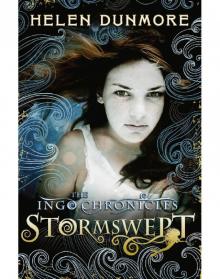 The Ingo Chronicles: Stormswept
The Ingo Chronicles: Stormswept The Deep
The Deep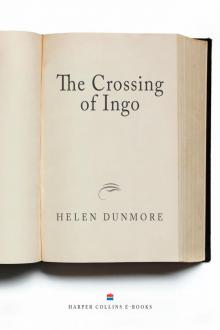 The Crossing of Ingo
The Crossing of Ingo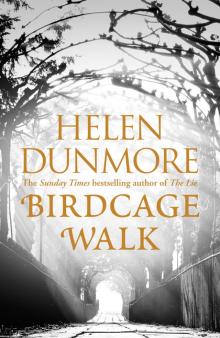 Birdcage Walk
Birdcage Walk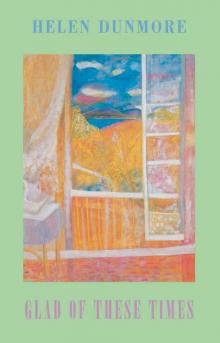 Glad of These Times
Glad of These Times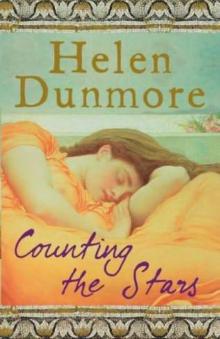 Counting the Stars
Counting the Stars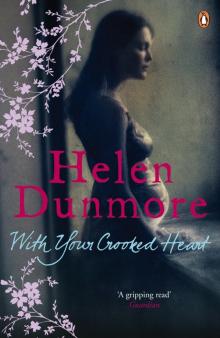 With Your Crooked Heart
With Your Crooked Heart Burning Bright
Burning Bright House of Orphans
House of Orphans Mourning Ruby
Mourning Ruby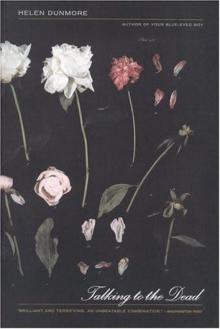 Talking to the Dead
Talking to the Dead Exposure
Exposure Ingo
Ingo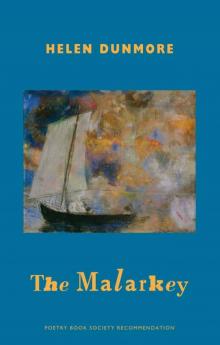 The Malarkey
The Malarkey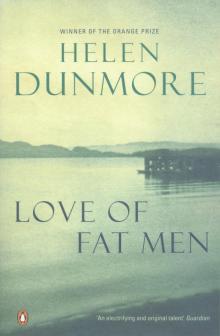 Love of Fat Men
Love of Fat Men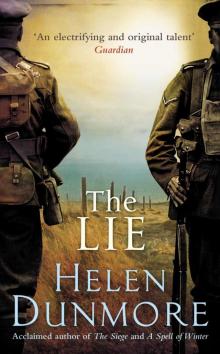 The Lie
The Lie The Siege
The Siege Inside the Wave
Inside the Wave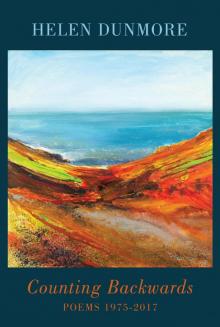 Counting Backwards
Counting Backwards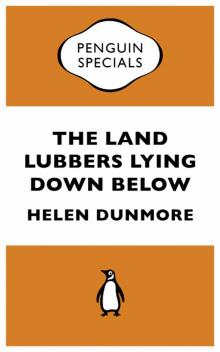 The Land Lubbers Lying Down Below (Penguin Specials)
The Land Lubbers Lying Down Below (Penguin Specials)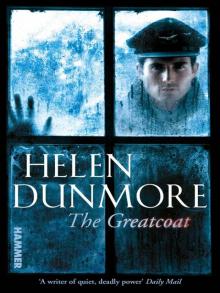 The Greatcoat
The Greatcoat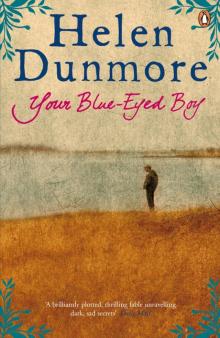 Your Blue Eyed Boy
Your Blue Eyed Boy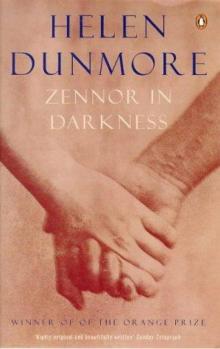 Zennor in Darkness
Zennor in Darkness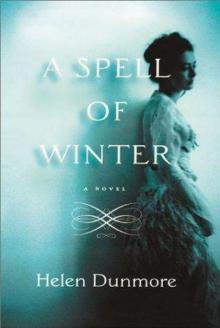 Spell of Winter
Spell of Winter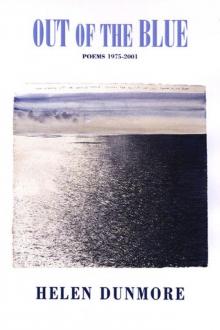 Out of the Blue: Poems 1975-2001
Out of the Blue: Poems 1975-2001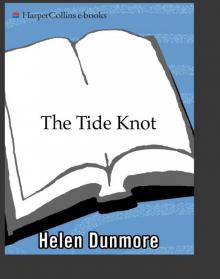 Tide Knot
Tide Knot The Betrayal
The Betrayal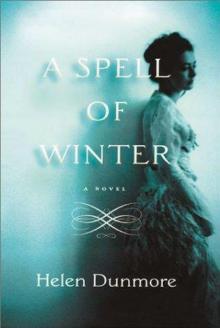 A Spell of Winter
A Spell of Winter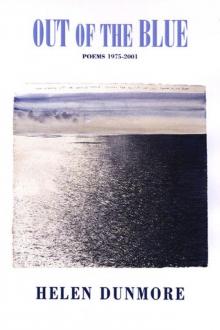 Out of the Blue
Out of the Blue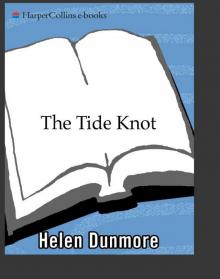 The Tide Knot
The Tide Knot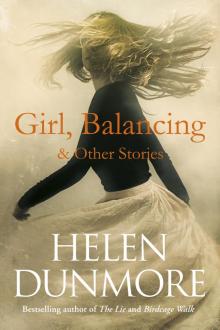 Girl, Balancing & Other Stories
Girl, Balancing & Other Stories Betrayal
Betrayal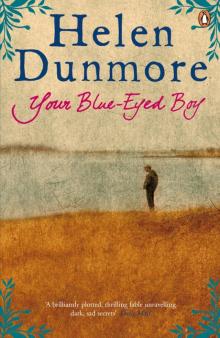 Your Blue-Eyed Boy
Your Blue-Eyed Boy